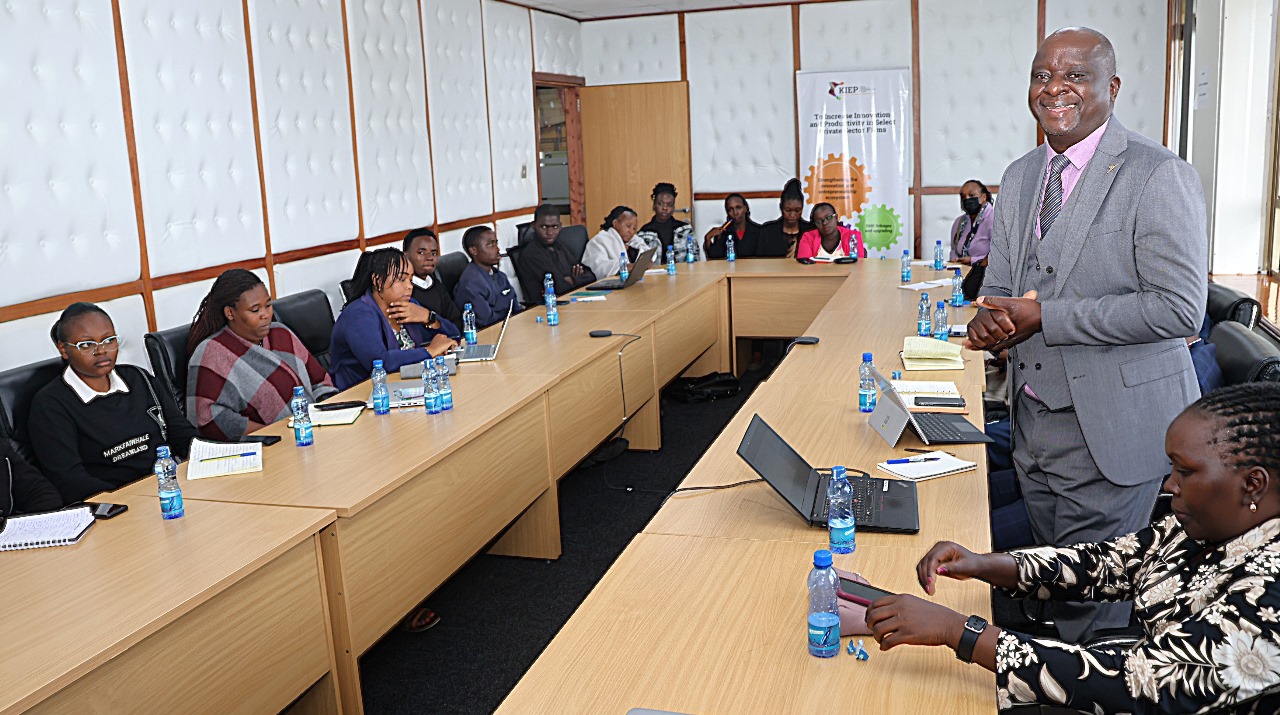KJET Launches Coordinated Communication Push to Deliver Job Creation Under A Ksh. 20B Programme
Nairobi, Kenya – May 21, 2025
In a concerted effort to bolster job creation and attract private investment, the State Department for Investment Promotion convened a joint consultative meeting bringing together Communication Personnel drawn from both the Ministries of Investments, Trade and Industry (MITI) and the Ministry of Cooperatives, Micro, Small and Medium Enterprises (MCOMSMEs) Development to streamline the communication strategy for the Kenya Jobs and Economic Transformation (KJET) programme.
KJET a flagship initiative is a line credit from the World Bank worth Ksh. 20 billion ($150 million), which aims to generate up to 45,000 jobs over the next five years, with a focus on inclusivity and sustainability. KJET's implementation is divided between the two Ministries, each hosting a Project Implementation Unit (PIU).
The Ministry of Investment Promotions, Trade and Industry (MITI) is responsible for spear heading the implementation of reforms to improve the business climate and lead efforts on green financing and climate resilience for Micro, Small and Medium Enterprises (MSMEs). MCOMSMEs will focus on enhancing MSME cluster competitiveness. The programme targets addressing structural barriers hindering MSME growth, such as poor productivity, limited financing options and an unsupportive regulatory environment.
To address financing challenges, KJET aims to enhance access to equity financing, shifting away from debt-heavy models. The Green Investment Fund (GIF), to be implemented by the Kenya Development Corporation (KDC) and other investors, will channel close to Ksh.26 billion (USD 200 million) to climate-smart businesses vetted through a harmonized green screening framework. Investments will involve equity stakes of up to 30% in promising businesses, with an exit strategy spanning five to seven years.
The programme's success hinges on robust legal, environmental and M&E support systems. Legal teams will steer the regulatory reform process, while environmental units will be responsible for ensuring adherence to pollution control standards, labor regulations, and health and safety protocols.
In-built in the programme is a grievance mechanism that will facilitating stakeholder engagement, and promoting sustainable development alongside economic growth. An integrated M&E system will support the tracking of progress in job creation, MSME development, productivity improvements and policy reforms.
The half-day session underscored the necessity of a unified communication framework to articulate KJET’s objectives across diverse stakeholder groups. Participants emphasized the role of strategic messaging, branding and performance tracking in elevating the programme's visibility. A key outcome of the meeting was the commitment to bridge the gap between data and storytelling.
Communication officers pledged to co-develop content based on M&E insights, including success stories, infographics and digital media tailored to the specific audiences. By fostering collaboration across ministries and anchoring communication in evidence, KJET is positioning itself not just as a funding mechanism, but as a transformative engine for Kenya’s inclusive and green economic development.

